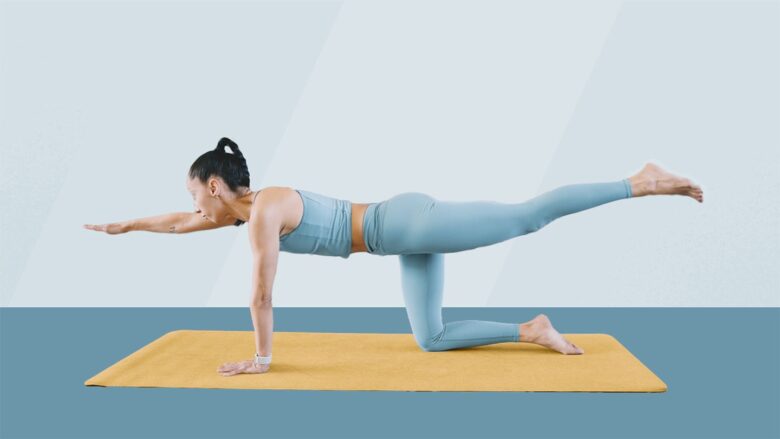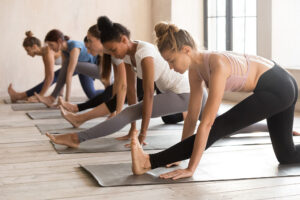Starting an exercise journey can be intimidating for people who are new to the sport. But, understanding the value of exercise is the initial step towards establishing an active and healthier life style. Exercise is not just good for endurance and strength, but also boosts your the mood, improves the health of your heart, and improves overall wellbeing. For newbies taking a gentle, consistent exercise can help build a solid base without overburdening the body. It is not the goal to achieve perfection, but rather to start the first step towards an improved lifestyle.
Begining with Walking as the Most Secure Exercise
Walking is among the most convenient and efficient exercises for those who are just starting out. It doesn’t require gym equipment or membership, and can be performed at any time during the day. For those who are just beginning their health journey routine exercise routine that includes walking can help improve the health of your cardiovascular system, improve endurance, and help with weight loss. Beginning with small distances before gradually increasing the duration and speed helps to increase stamina and confidence. It also gives you an chance to breathe in breath of fresh air, unwind the mind, and establish an habit of regularly moving.
Bodyweight Exercises to Build Strength
The concept of strength training is often misinterpreted as a sport for only advanced fitness enthusiasts, however beginners can benefit from easy exercise routines that are based on body weight. The exercises rely on one’s body as a source of resistance and are perfect for people who are not used to exercise. Exercises such as squats as well as wall push-ups and gentle lunges can help build muscles and improve the flexibility and balance. A few times per week will allow your body to adjust and get stronger, helping beginners get ready for more difficult exercises in the near future.
Stretching to Enhance Flexibility and Prevent Injury
The importance of flexibility is often overlooked during exercises, yet it is essential in preventing injuries as well as improving mobility. Beginning athletes should incorporate gentle yoga exercises to their regular routine in order to keep muscles at ease and joints in good health. Simple stretching exercises can help target the legs, back, shoulders and arms, enhancing the posture of muscles and reducing stiffness. It also increases blood flow and assists in recovery after exercise, which makes it the perfect method to start and finish any exercise session.
Breathing and Balance Exercises for Stability
For beginners who aren’t quite sure, understanding how to control your breathing and improve balance is equally important as gaining endurance or strength. Activities that concentrate on breathing, like diaphragmatic breathing and deep belly breathing, help control the heart rate, relax the nervous system, and increase oxygen circulation through the whole body. Exercises that require balance, such as standing on one foot, or using a sturdy chair to provide support, can to improve coordination and stability. These basic exercises are useful for seniors or those with limited mobility.
Light Cardio to Boost Heart Health
Exercises that involve cardio help raise the heart rate, and also improve the efficiency of the circulatory system and lungs. For the beginner, light cardio exercises like marching around in the same place and dancing to music or engaging in low-impact aerobic workouts are both enjoyable and efficient. These workouts can help shed calories, assist in weight loss, and improve levels of energy. A mere just 10 or 15 minutes of moderate cardio per day can create a dramatic improvement in endurance and heart fitness over time. The crucial thing is consistent and gradual progress in the intensity.
Training for Chairs those with Limited Mobility
Certain beginners might have limitations that hinder them from being in a position for long periods or performing regular exercises. Chair exercises are a great alternative to improve strength and flexibility as well as circulation while sitting. These include leg lifts at a seated position along with arm circles, as well as twists of the torso. Exercises in the chair are beneficial for older people, those recovering from injuries, or suffering from chronic health issues. They offer a secure and efficient method to stay active and gradually build confidence to do standing exercises.
Establishing a Simple Routine That Works
Establishing a regular routine is crucial to success on any fitness journey. For beginners, it is important to schedule a certain time every day for fitness even if it’s only 10 or 20 minutes. Begin with small and manageable exercises will help you keep going and avoid burning out. As fitness levels increase the beginner will gradually increase the time and range of their workouts. The aim is to make exercising an integral part of your everyday life, similar to eating a meal or brushing your teeth. Regular exercise helps to keep the habit going and can bring long-term health advantages.
Conclusion
The process of starting a fitness routine for beginners doesn’t have to be difficult or overwhelming. The key is choosing easy exercises that are safe, and can be performed repeatedly and effortlessly. Whatever it is, whether it’s walking, stretching or light cardio chair exercises, the aim is to move your body every day and establish an exercise routine that promotes long-term health. Physical exercise improves mental clarity, improves your body and increases the overall quality of life. With perseverance, patience and a positive mindset even the absolute beginner can establish a solid base for lifelong well-being and health.
FAQs
1. What’s the ideal exercise for someone who’s not worked out before?
Walking is usually regarded as the ideal exercise for novices since it’s safe, easy and efficient in developing endurance and improving cardiovascular health, without the need for specific equipment.
2. The length of time that beginner HTML0 be working out every day?
Beginning exercisers can begin with 10-20 minutes of moderate exercise each day. They can gradually increase their time as their fitness improves.
3. Do I have to exercise every day, even if I’m an inexperienced person?
Yes, but it’s essential to mix up your workouts and take rest days. For instance, you can walk or stretch every day, but take a break from strengthening exercises on a regular basis.
4. Do you need that you join an exercise class be fit for a beginner?
Many useful beginning exercises are completed at home, using your body weight household objects, household supplies or even a small amount of equipment.
5. What happens if I experience soreness after exercising at first?
The soreness may be mild and typically indicates you are adjusting. Hydration, rest and gentle stretching can reduce soreness.




